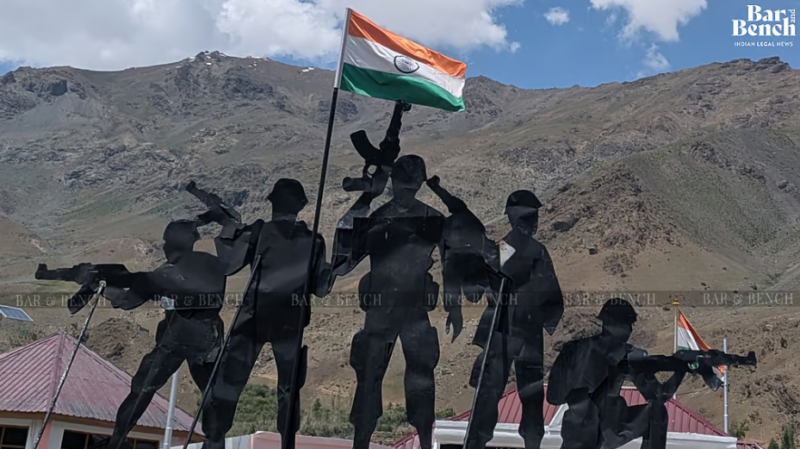
The Delhi High Court recently underscored the importance of disability pension for soldiers who suffer the stresses and strains of military life, while affirming the grant of disability pension to two soldiers [Union Of India & Ors. Vs Ex Sub Gawas Anil Madso].
The Bench of Justice C Hari Shankar and Justice Ajay Digpaul observed that the possibility of disease and disability comes as a package deal when one goes to serve the country as a soldier.
“The bravest of soldiers is prone, given the conditions in which he serves the nation, to fall prey to bodily ailments which, at times, may be disabling in nature, rendering him unable to continue in military service. In such circumstances, the least that the nation can do, by way of recompense for the selfless service that the soldier has lent it, is to provide comfort and solace during the years that remain,” it added.
The Court explained that it is for this reason that laudable provisions for the grant of financial benefits (such as disability pension) have been introduced, to help soldiers who encounter disease or disability due to military service.
The Court also questioned if the selfless service rendered by soldiers can ever be truly compensated.
“(John F Kennedy said) ‘Ask not what your country can do for you; ask for what you can do for your country.’ There are those of us who eulogize and revere these words, but stop there. Then there are those who make it part of their lives, and are willing to sacrifice their all for their country – who, while we sip our hot cappuccinos by the fireplace, are braving icy winds at the border, willing to lay down their lives at a moment’s notice. Can anything, that the nation, and we as its citizens, give to these true sons of the motherland, ever be too much?” the Court remarked
The Court was hearing two appeals moved by the Union of India against the grant of disability pension to two soldiers by the Armed Forces Tribunal (AFT).
One of these two soldiers was Gawas Anil Madso, who joined the army in 1985 and was discharged from military service in 2015 after being diagnosed with Diabetes Mellitus (DM) Type II.
A release medical board (RMB) concluded that he would suffer 20 per cent disability for life but was not entitled to disability pension.
The Court disagreed with the decision not to grant him disability pension.
“The RMB Report is completely bereft of reasons, as to why, when the respondent (Madso) admittedly became a sufferer of DM 34 years after induction in service, the DM could be regarded as not attributable to military service,” the Court said.
The Court acknowledged that there was a service rule which said that a health condition arising during military service cannot automatically be presumed as having been caused by such army service.
However, the Court also held that this does not mean that the soldier has the primary burden of proving that the health condition is attributable to military service.
The Court concluded that the army authorities have to show that the decease is not a result of military service. In Masdo’s case, this was not done, the Court found.
“While we are not doctors, it is a matter of common knowledge that Diabetes is a disease which can be caused, and exacerbated, by stressful living conditions. The fact that the onset of the disease might have been while the officer was on a peace posting cannot, therefore, be determinative of the issue of whether the disease was, was not attributable to military service. In such a case, the RMB has a greater responsibility to identify the cause of the disease, so that a clear case, dissociating the disease and its onset, from the military service of the claimant officer, is established,” the Court held.
Consequently, the Court upheld the AFT’s decision to order the grant of disability pension to Madso.
Similarly, the Court also ruled in favour of Amin Chand, who joined the army in 2005 and was due to retire in 2020. However, before his retirement, he was diagnosed with Peripheral Arterial Occulsive Disease in his right lower limb. He was assessed to have a 20 per cent disability.
However, he too was denied disability pension, prompting him to approach the AFT, which granted him relief. By its March 27 ruling, the Court dismissed the Centre’s appeal against this verdict as well.
Referring to the RMB report based on which disability pension was denied to Chand, the Court held,









